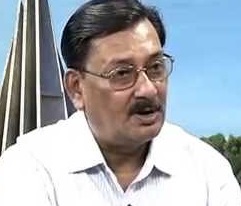Last Updated on October 23, 2020 7:54 pm by INDIAN AWAAZ

By Gautam Lahiri / New Delhi
The Prime Minister Narendra Modi led NDA government at Centre is weighing all options for implementation of the controversial Citizenship Amendment Act (CAA) before the West Bengal state Assembly poll, due next year.
Meanwhile, the External Affairs Ministry is busy finalising the agenda for upcoming virtual summit meeting between PM Narendra Modi and his Bangladesh counterpart Sheikh Hasina, scheduled to be held on 16th December to mark the Vijay Diwas (Victory day) of Bangladesh. The Hasina Government has also invited PM Modi to be present physically on March 26, 2021 to celebrate jointly Independence Day of her country. If it happens, it will be the first foreign visit by the PM during Corona pandemic.
Now the Government is in a fix over implementation of the controversial Act which may create tension in Bangladesh and may casts a shadow on Modi’s upcoming visit to Dhaka.
It is almost a year that the Central Government could not implement the CAA as necessary rules for its implementation could not be finalised. However, the other day BJP national President JP Nadda, while addressing a rally in north Bengal, said his party was committed to implementing the new citizenship law, come what may. He also said that necessary rules for implementing the Act are being finalised.
Sources in the Government confirmed that the Law and Justice Ministry has finalised the rules and sent them to Home Ministry for presenting it to the Subordinate legislative Committee of Parliament. As all the rules for implementation of an Act has to be cleared by the Parliament committee,
The Home ministry had in September sought three month time from Parliament for tabling the CAA rules. The deadline is about to end in the first week of November. The Ministry is ready with the rules and waiting for political clearence from the highest level for its implementation.
The Act will not only have an impact in Bangladesh but it may create political unrest in the state of Asaam which is also going for poll at the same time as West Bengal.One option Government is examining is delaying the implementaion of the Act till the Assembly elections in the two eastern states are over.
The CAA which facilitates granting Indian Citizenship to persecuted non-Muslims minorities of Pakistan, Bangladesh and Afghanistan has already led to protests in different parts of the country and also in neighboring Bangladesh. The newly appointed High Commissioner of India Vikram Doraiswamy recently met Foreign Minister of Bangladesh Dr AK Abdul Momen in Dhaka and apprised him about the future plan for joint engagement between the two countries.
After the meeting Dr Momen told the Dhaka reporters , “we want the Indian Prime Minister on March 26th because our victory over Pakistan ruler is also India’s victory. The High Commissioner has accepted the proposal in principal”.
After the CAA was passed by the Parliament, widespread protests were witnessed in the country. Those opposing the Act contend that it discriminates on the basis of religion and violates the Constitution. They also allege that the CAA along with the National Register of Citizens is intended to target the Muslim community in India.
However, Union Home Minister Amit Shah has dismissed the allegations and described the protest as mostly political. He had asserted that no Indian citizen will lose citizenship due to the act. Clashes between pro and anti CAA groups spiraled into communal riots in the north east of Capital Delhi in February which had left 53 people dead and around 200 injured.

Gautam Lahiri is a senior journalists

